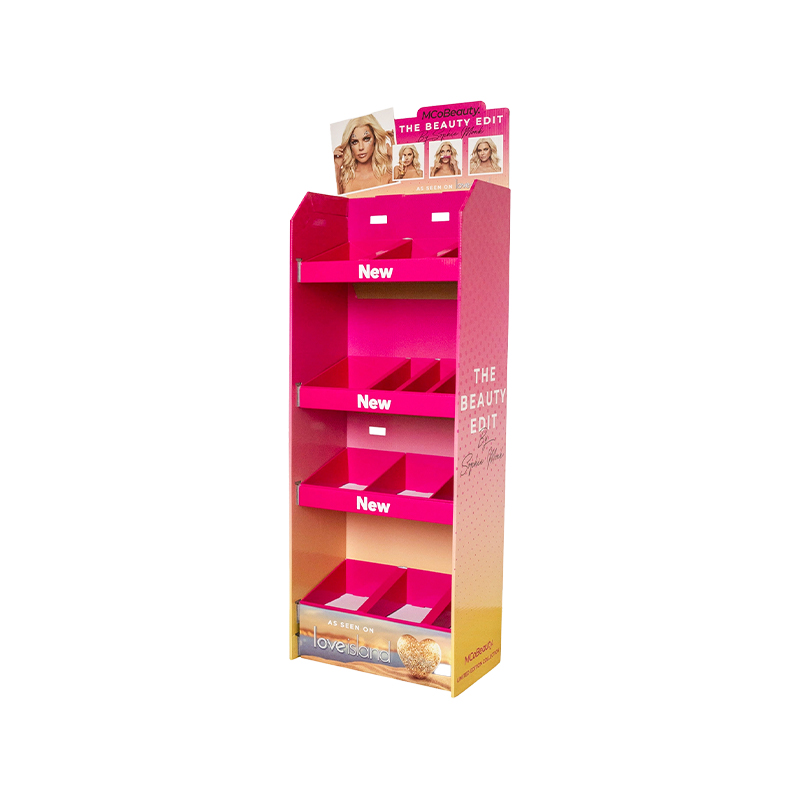-
 +86-0557-3781111 / +86-0571-56396277
+86-0557-3781111 / +86-0571-56396277
 +86-0557-3781111 / +86-0571-56396277
+86-0557-3781111 / +86-0571-56396277
The recyclability of cardboard retail displays plays a significant role in promoting sustainability within the retail industry in several key ways:
Reducing Waste:
Less Landfill Waste: Since cardboard is highly recyclable, using it for retail displays reduces the amount of waste sent to landfills. Instead of being discarded after use, cardboard displays can be recycled into new products, significantly lowering the environmental impact.
Circular Economy: The recyclability of cardboard supports a circular economy, where materials are continuously repurposed, reducing the need for virgin resources and minimizing overall waste.
Conservation of Resources:
Reduced Raw Material Consumption: Recycling cardboard reduces the need for new raw materials, such as wood pulp, which is used to produce new cardboard. This conserves natural resources and reduces the environmental footprint associated with logging and paper production.
Energy Savings: Recycling cardboard requires less energy compared to producing new cardboard from raw materials. This energy efficiency further contributes to sustainability by lowering greenhouse gas emissions associated with energy production.
Lower Carbon Footprint:
Reduced Emissions: The process of recycling cardboard generates fewer carbon emissions compared to the production of new cardboard from raw materials. By recycling, the retail industry can reduce its carbon footprint and contribute to global efforts to combat climate change.
Transportation Efficiency: Cardboard displays are often lightweight and can be compacted for efficient transportation to recycling facilities, reducing the fuel consumption and emissions associated with transport.

Promoting Eco-Friendly Branding:
Consumer Perception: Retailers that use recyclable cardboard displays can promote their commitment to sustainability, which can enhance their brand image and appeal to environmentally conscious consumers. This can drive consumer loyalty and support for sustainable practices.
Corporate Responsibility: By choosing recyclable materials, retailers demonstrate corporate social responsibility (CSR), contributing to a positive reputation and potentially influencing industry standards toward more sustainable practices.
Facilitating Recycling Infrastructure:
Support for Recycling Programs: The widespread use of recyclable cardboard in retail displays encourages the development and expansion of recycling programs and facilities. This infrastructure not only supports the recycling of retail displays but also benefits the broader community by providing more opportunities to recycle other paper-based products.
Innovation and Material Development:
Encouraging Sustainable Design: The demand for recyclable materials like cardboard drives innovation in material science, leading to the development of more sustainable, durable, and versatile cardboard options. These advancements can further enhance the environmental benefits of cardboard displays.
Biodegradable and Compostable Options: Some types of cardboard are designed to be biodegradable or compostable, offering additional environmentally friendly disposal options if recycling is not possible.
The recyclability of cardboard retail displays contributes to sustainability by reducing waste, conserving resources, lowering carbon emissions, enhancing brand image, and supporting the development of recycling infrastructure. These benefits collectively help the retail industry move toward more sustainable and eco-friendly practices.
Annhiu Address: Yishan Road and Qingshengou Road Intersection, Suzhou Economic Development Zone, Anhui, China
Tel: +86-0557-3781111
E-mail: [email protected]
Hangzhou Address: Building 3, No.286, Renliang Road, Renhe Street, Yuhang District, Hangzhou, Zhejiang, China
Tel: +86-0571-56396277
E-mail: [email protected]
Copyright © Hangzhou Shengpin Packaging Co., Ltd. All Rights Reserved.
